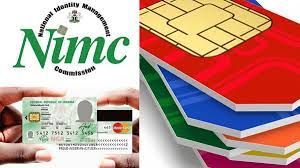NIN Database Hits 64.4 Million In September – DG NIMC
TECHDIGEST – Nigeria’s national identification number (NIN) database surpassed 64.4 million in September 2021, TechEconomy.ng can report.
This was disclosed by Engineer Aliyu Aziz, director general, National Identity Management Commission (NIMC), during a webinar organised by the Association of Licensed Telecommunication Operators of Nigeria (ALTON) on Thursday.
The DG speaking through Mr. Chuks Onyepunuka, director, IT/Identity Database, NIMC, emphasised the role of telecom service providers in identity management.
“Asides participating in the data capture services alongside normal business activities, telecom service providers are to ensure ID authentication / verification services are made available.
“They are to enforce mandatory use of NIN for Telecom services, harmonise the sim registers with the National ID system, support in sensitisation of industry stakeholders on ID projects and requirements, participate in awareness-raising activities on the importance and benefits of ID to the general public, provide network infrastructure for continued ID registration and authentication and project data and privacy of users’ information.
“These will help speed up the process, enabling citizens to be in symmetry with the goal, bringing about adequate management and ease of access to identity information in any sector”, he said.
Aziz went ahead to state exactly what the telecom service providers are to be focused on. Added to collecting data for unique ID issuance using existing touch points, request and authentication of NIN for sim acquisition as part of everyday business practices is essential.
“NIN should be used as the only valid means of ID for telecom services, they are to ensure the linkages of all sim with NIN for both existing and new subscribers, jointly provide publicity and enlightenment campaigns towards ID acquisition and compliance and support in providing awareness and education on ID’s role in socio-economic development, governance and national security.
“Also, it is important that they ensure reliable and sustainable network provision to broaden NIN registration landscape and the compliance with data protection rules and regulation regarding ID data access and usage must not be ignored”, he emphasised .
Moving on to statistics, Aziz outlined the status of registration and NIN issuance as below:
203 partners licensed as data capture agents/front end partners
Over 4,768 enrolment centre established across the nation
8,520 active enrolment devices used for NIN registration
8,753 enrolment operators trained on NIN registration processes
64,400,000 NIN successfully generated and issued
35 firms onboarded on the authentication/verification platform
Diaspora enrolment carried out in about 25 countries of the world
Windows and android enrolment software used for NIN registration
Contactless Biometric Capture kit launched for NIN enrolment
12,000,000 mobile downloads of the NIMC Mobile App recorded with over 47,000,000 digital profiles created
N25,000,000,000 approved by FEC to upgrade the critical ID backend infrastructure
He said, although the partnership between stakeholders and telecom service providers has boosted enrolment figures and driven rapid deployment of enrolment centres across the nation, compared to the population of Nigeria, 212, 473,029 people, it can be said that there’s still a lot to be done and more efforts to be put in, ensuring a well-circulated medium to guarantee success.
Conclusively, Aziz said the digital identification programme is a key component of the digital economy agenda.
The foundational ID is an essential piece of the digital platform for an economy and the telecom service providers are critical stakeholders in the identity for development projects of Nigeria.
It was further noted that sustainability of a robust ID system is largely on the active participation of the ecosystem partners such as the telcos.
The integration of unique foundational ID with the other registries of agencies will significantly improve targeting of appropriate beneficiaries for programmes and reduce fraud related issues amongst others.
Having a robust and verifiable ID System can help the private sector increase the identifiable customer base, reduce onboarding time and create significant opportunities for innovation and growth.
All ID stakeholders have a role to play in accelerating the digital ID development in Nigeria, including support, enforce, participate, communicate, utilise, comply among others
















